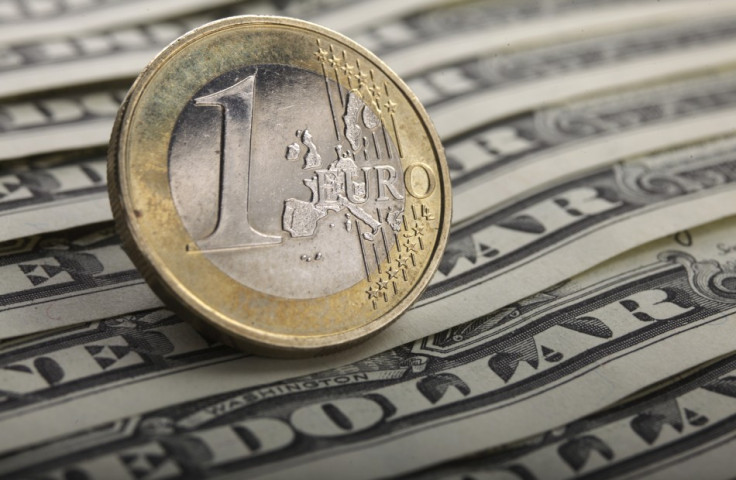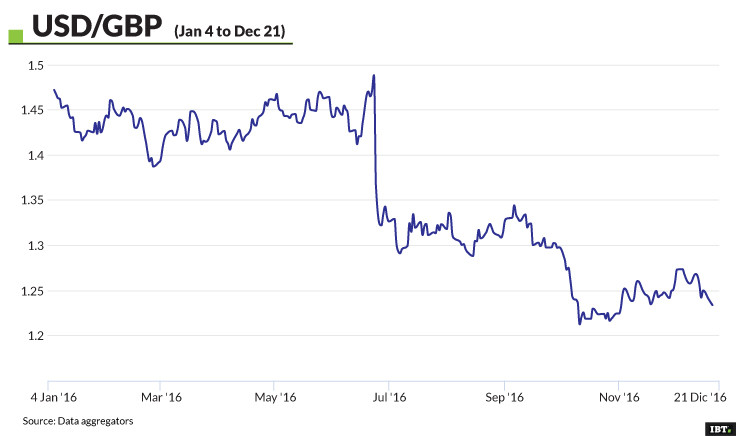US dollar could peak within 100 days of Donald Trump's presidency
The American currency, like Icarus, is in danger of flying too close to the sun.

Trading in 2016 started brightly, with global equity markets, bond yields and the dollar flying high, but went downhill as oil prices collapsed, Asian equity prices fell, and the UK voted to leave the EU.
Now, the excitement about a Donald Trump Presidency has helped get bond yields and the dollar back up. Double-digit gains for the FTSE 100 in the UK and the S&P 500 in the US reflect both the pound's fall and the improvement in US sentiment over the year as a whole.
In trade-weighted terms, the US dollar is up 37% from its 2011 lows, and is within 2% of the highs it hit in 2002. The image that springs to mind is of Icarus, flying high on his handmade wings, but doomed to get too close to the sun and crash back down to Earth.
The US economy is likely to grow by around 2.25% in 2017; better than 2016 but that is hardly a boom. President-elect Trump's tax cuts and infrastructure spending will take time to implement and come against a backdrop of dwindling economic slack.
The unemployment rate is a mere 0.2% above the low of the last economic cycle in 2006, so growth depends on higher productivity or the return of a large number of people to the labour force. Trump's inauguration is on 20 January, 2017 and I would not be surprised if the dollar's peak comes before the end of the first hundred days of his Presidency. Bond yields are likely to go on rising for a bit longer, as higher inflation frays nerves.
Another landmark will be the French Presidential Election, on 30 April 30 and 7 May. The front-runners are the Front National candidate Marine Le Pen and centre-right Republican nominee, Francois Fillon but a handful of other candidates add to uncertainty in the first round.

The euro is significantly undervalued but the European Central Bank (ECB) extended its asset-purchasing programme in December, and it will struggle to find buyers until the second quarter at the very earliest.
The Chinese yuan (CNY) has depreciated by 7% against the dollar in 2016, and has reversed nearly half of the gains it made between 2005 and 2014. Another 5% rise in the USD/CNY rate is likely but it won't always be a smooth ride as the authorities as capital seeps out the country and the nation's currency reserves fall.
Beijing's $3trn in reserves is still a formidable total, but within China, pressure is growing to allow faster pace of depreciation (and less foreign exchange market intervention). Meanwhile, on the other side of the Pacific, President-elect Trump appears to believe that China manipulates its currency to promote exports.
The UK economy is likely to grow by around 1.25% over the course of 2017, which would not be weak enough to justify further easing by the bank of England, or to allow interest rates to go back up.
I believe the pound has probably fallen enough (see chart) to discount a fair amount of bad news, but soggy growth and ongoing uncertainty about the timing and terms of the UK's exit from the European Union, will act as an anchor.
Kit Juckes is the head of forex at Société Générale, having joined the French investment bank in 2010. A market veteran of over three decades, he has previously worked for ECU Group, RBS, Mitsui Bank and SG Warburg.
© Copyright IBTimes 2025. All rights reserved.




















